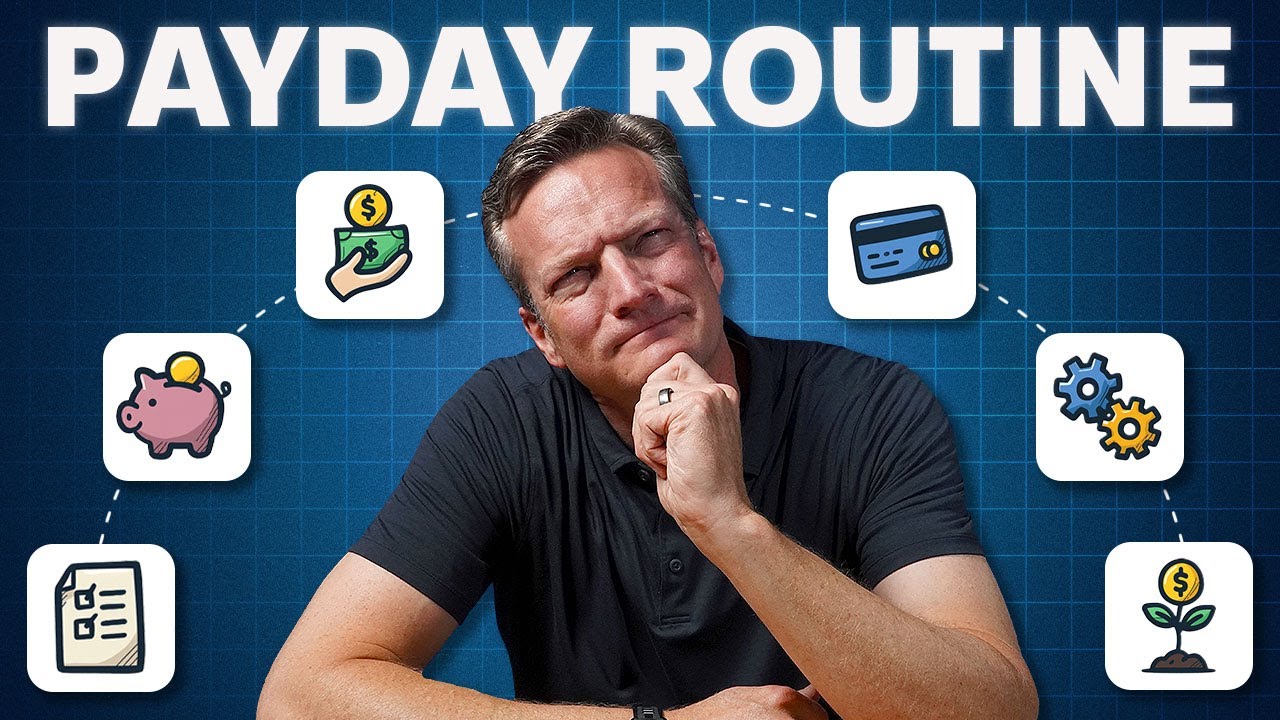Next up, a question from Dustin. "I'm 27, and my wife and I are saving for our next house. I'm having a difficult time convincing her to increase our Roth IRA to the max instead of saving everything for a down payment. So here's the spicy question: Who's right here? Is it alright to save for a down payment?"
Oh Dustin, marriage counselors Brian and Bo coming up. Right, there's not a right or wrong answer here because money is a tool that allows us to do the things that we want to do. What we have to do then is define what are the things that we want to do. Once we have that clearly defined, we can then determine the strategy that allows us to move towards that goal.
It sounds like you and your wife are not on the same page about what the goals are. It seems to me that she has a goal for the next house, which I would argue, based on her analysis and what I'm seeing here, is her number one goal. Your goal, on the other hand, is building for retirement or financial independence, or whatever that is. When it comes to goals, it's a subjective thing. You can't say one person's goal is right and the other person's goal is wrong. What you can say is that maybe pursuing one goal might make it more difficult to reach another goal. But you guys, in order to solve this conundrum, you're in, you've got to get on the same page and figure out where the priority lies.
Because one answer might be, "Hey, you know what? Yeah, we gotta back down our savings, save for the down payment, get the house, and then we have to agree we're going to make up for lost time." Or one camp might say, "Okay, no, we're not going to miss out on Roth because we know that's a limited opportunity, so we're going to keep doing that, but it might postpone when we get that down payment built up."
I'm going to advocate that either one of those answers could be right in your circumstance. But what you need to do at 27 years old is to feel like, "Okay, what's the cost of pursuing one over the other?" If I'm not saving and if it takes us five years to build a down payment, how much opportunity cost was lost from age 27 to 32 doing that? On the other hand, if all we do is save and it takes us 10 years before we can buy our first house, what does our family situation look like if we're still renting when we're 37 years old?
I think they really, as a couple, have to get on the same page about what they're actually trying to accomplish and pursue. Well, I want to go a little deeper on something here, and that is that we need to talk about "get wealthy" behaviors. Obviously, going through the
Financial Order of Operations are "get wealthy" behaviors, and we give what I think is interesting when I look at step four, emergency reserves. When we talk about people's first down payment on their first house, we don't tell them they have to put down 20%. We tell them they have to put down three to five percent because I know just getting into the homeownership game is hard, and we want to help them out.
Dustin, you've already shared that you've already owned your first home, so that means you bought a house. I'm hoping that it has appreciated because we've had this inflationary period, we've had all kinds of things that, in the background, have pushed up the value of real estate. So hopefully, Dustin, you and your spouse have been the beneficiaries of that. Because what I think is, we give a Grace Point on that first home because we're hoping that you get the house and then you get back to building wealth as fast as possible. Move on to step five, which is Roth IRAs, health savings accounts, and then maxing step six, which is maxing out your retirement accounts. Hyper accumulation of step seven, and then you get to step eight, which is prepaying expenses. You know, so there's a... that we're trying to get you to build wealth while you're young in your 20s. You only get one opportunity. I would recommend visiting
moneyguy.com/resources to pull up the money multiplier and see the potential every dollar holds for a 27-year-old. You'll feel like you're racing against the clock because every dollar is so valuable.
So here's the thing I would challenge you on, Dustin. Go look at it because maybe both of you get to do this, meaning you get to keep building wealth by investing in the Roth and so forth, but your spouse also gets a house if you've had enough appreciation in your house. If you did a contingency contract, meaning you didn't sell, you put your first house on the market and you find the new house you want, put a contingency contract stating that you want to buy this house but have to close on your house first. If you can structure it that way, and since the real estate market is returning to some normalcy or at least cooling off to the point where you can do due diligence and other things, I think you'll be able to start doing contingency contracts again. Hopefully, you could have 20% equity in the new house, meaning your down payment would be the equity in your current house. You'd still be able to save and invest for the future.
If that's not the case, if you don't have 20% equity or down payment equity in your house that could be used as a down payment on the new upgraded house, then I think you have to wait until you reach step eight of the
Financial Order of Operations, which is prepaying expenses after you have a plan to save and invest 20% for the future. Because you're 27, you're already in your first house, you've got a lot of good things working for you, you've got to find a way to stay on track and not try to go for bigger and better before it's time because you're already there. So, I'm hoping that there's a win-win situation if you look at the equity of the house. If the equity is enough to boost up the down payment on the second upgraded house and it still fits within all the housing rules and everything else, then both of you get to win. You don't want to be right and have them be wrong. You want to have a win-win situation. That's the situation I'm always looking for. Want to know what to do with your next dollar? You need this free download:
the Financial Order of Operations. It’s our nine tried-and-true steps that will help you secure your financial future.













